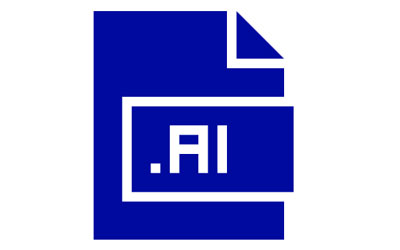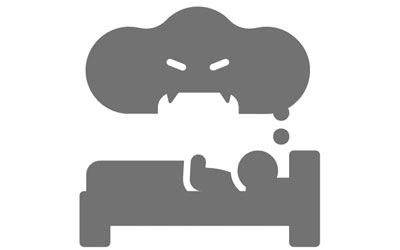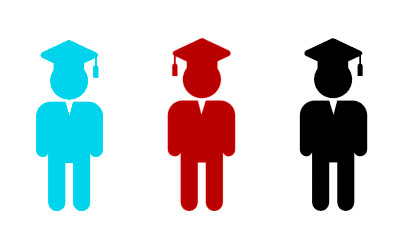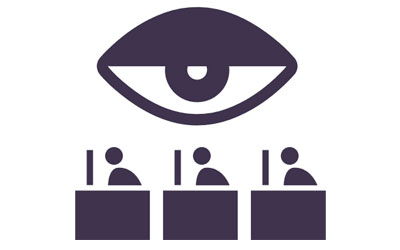Have recent events in public education left you feeling as if you were walking around in a kind of stupor? As if you were caught in a dream in which you couldn’t tell what was real from what wasn’t?
Filmmaker Christopher Nolan explored the idea of messing with people’s minds through dreams in his thought-provoking blockbuster, Inception. Arthur (played by Joseph Gordon-Leavitt), who is one of the movie’s protagonists on a team that specializes in infiltrating and manipulating dreams, explains to a client: “In the dream state, your conscious defenses are lowered and it makes your thoughts vulnerable to theft.”
We’re seeing our children’s mental defenses being lowered wholesale in public education right now. This violation of the sacred property of their consciences is ideological, structural, practical, and intentional. When Natalie Cline and I present our research findings that explain the impact of this educational theft on parents and their children, we often get asked, Who’s doing this? And why?Our short response is that it’s those who have money, power, or influence and would love to have more, even if it comes at the cost of our kids’ consciences.
Who and Why? are easy questions to answer when it comes to the compromised security of our children’s academic sanity, but the real stumper to address in a sound bite is the question of How? That may seem like a stupid statement considering all the visual proof of indoctrination flooding social media. If your ears and eyes function reasonably, the How? appears blatant—the sexualization through LGBTQETC flags, symbols, and pronouns; the politicization through Black Lives Matter propaganda posing as literature; the environmental justice activism masquerading as “civics”—aren’t these examples enough to answer how the mental theft is happening? Yes, but….
There’s an unusual uniformity, a forced standardization of core metrics that would perhaps suggest some type of shadowed activity occurring at an underlying level between the elitist, academic origins of the psychological pilfering of our children and its surreal manifestation in our nightmarish urban and rural classrooms. As JaKell Sullivan said, our children are caught in an education dream state that has created parents’ worst nightmare. How exactly is the inescapably surreal state of our schools being bolstered and sustained to spirit away our students’ consciences?
If we drew an organizational chart that tracked the bad actors at the source of the educational dogmas designed to displace our children’s home-centered dispositions and belief systems, the top of the chart would feature prominent global names like the United Nations, UNESCO, Organization for Economic and Cooperative Development (OECD), American Institutes for Research (AIR), Collaborative for Academic Social Emotional Learning (CASEL), Global Science of Learning Education Network (GSOLEN), and the World Economic Forum (WEF). Is this an exhaustive list? Not even close, but it gives us a glimpse of where academia collides with technocrats, scientists, and corporatists, resulting in a convergence of quasi-governmental thought-leaders and change makers who have combined to advance a common interest. In other words, this group operates as a syndicate, not unlike the dream-thieving team assembled in Inception.
What is this syndicate’s common criminal interest? It has taken it upon itself to reimagine the Western ideologies of utilitarianism, pragmatism, humanism, nihilism, logical positivism, behaviorism, eugenics, and Marxism to exploit a new generation of schoolchildren and educators with newly recreated “content and pedagogies” that counterfeit reality.
These change makers know that anti-family, anti-freedom, and anti-social ideologies can’t be sold to lawmakers and schools in their raw form, so these ideologies require a clever and transformative label—one that ingeniously reimagines them under the breathtakingly and deceptively simple term of “information.” Information no longer refers to knowledge about discrete disciplines like the sciences, mathematics, history, and language. This is made more than clear by the fact that entire papers dedicated to topics like the “knowledge base” in education don’t make a single mention of academic topics and their treatment in schools.
This ideologically underpinned information gets “analyzed and investigated for a purpose,” which then qualifies it as “research.” This research then qualifies as “evidence-based” (if it establishes what “works,” meaning implemented as a practice or process) and as “evidence-informed” (if it is “not used directly but…shape[s] attitudes and ways of thinking in indirect and subtle ways”).1 Either way, the evidence-based and evidence-informed designations give the syndicate a cover for converting research back into ideology, so that children’s mindsets can be both directly and indirectly surrounded in a type of subliminal pincer move. So, what began as raw ideological matter at the beginning of this process has now been commoditized (turned into a product) and operationalized (made usable), making it transferable, observable, predictable, controllable, and measurable in educational settings, which settings now include our children’s minds.
Not surprisingly, if the public were to wake to the reality that this body of research-based or research-informed “evidence” is actually commoditized, operationalized ideology that is weaponized against our children, the syndicate’s plans wouldn’t survive the exposure.
To lessen this danger, the syndicate must reframe its illicit efforts to indoctrinate under the defense-lowering heading of “SCIENCE.” Science is the banner for all of the syndicate’s global dogmas. Parents, children, teachers, and administrators have all been conditioned to not argue with or question science. Science has become the new pantheism, with its roster of gods growing daily—The Science of Learning. The Science of Reading. Implementation Science. The Science of Instructional Design—the list goes on and on. The number of educational areas that now qualify for the qualifier of “science” is increasing exponentially, thanks in part to the fact that student learning and teaching have been “scientized” through taxpayer-funded experimentation and data collection on a constant stream of child consciousness.
breaking down the break-in
If the concept of science is being exploited to propagate an ideological “knowledge base” intended to replace the vision that a child or child’s parent might have for the child’s education and future, there still remains the trick of translating this effort to public policy and practice.
How are we seeing the infiltration and manipulation of the halls of government and schools being systematized? How does the syndicate ensure that its tangible, usable ideologies become widely transferable? Consistently observable and predictable? Sustainably controllable? Reliably measurable? The syndicate’s intentional and specific terminology must be interpreted correctly and with fidelity across cultures, counties, and even countries in order to be effective. After all, the thought-leaders can’t run the risk of having the locals mistake the phrase “learner agency” for actual freedom of thought, can they? And it would be nothing short of blasphemy to the global agenda to have the words “diversity, equity, and inclusion” mean ideological variety and equality before the law.
It can’t be coincidence that from school to school, district to district, state to state, and even nation to nation, we’re seeing the same cultural lines drawn in eerily similar fashion—classrooms across the world are conforming to practices associated with the U.N.’s Sustainable Development Goals, Diversity, Equity & Inclusion, Social Emotional Learning, Personalized Competency-Based Learning, College & Career and P-20W pipelines, School Choice initiatives, Multi-Tiered Systems of Support, and so on.
The convergence of similar practices and policies across culturally and economically divergent areas is too widespread to be attributed to chance. It is, in fact, what OECD authors José Manuel Torres and Mykolas Steponavičius describe as “knowledge mobilization” in their working paper No. 285: More than just a go-between: The role of intermediaries in knowledge mobilization.
Knowledge mobilization is how ideological information from researchers becomes entrenched in schools and legislated by state and national governments, aided by “education intermediaries.” Intermediaries aren’t people or institutions as much as they are roles within the education community that can shift based on changes in personnel, parties, priorities, and purposes. Intermediaries are indispensable for implanting ideas. Without actors in these roles, it is unlikely that thought-leaders would be effective in executing intellectual larceny on our children.
The objectives and functions of knowledge mobilization are divided into categories and roles, though these are not mutually exclusive:
- Knowledge managers, who create and disseminate knowledge,
- Linkage agents, who facilitate relationships (Charlotte Iserbyt’s description of these intermediaries is keenly perceptive)
- Capacity builders, who build skills and capacities
- Knowledge managers, linkage agents, or capacity builders may participate in research use and intervention and support, scale-up and sustainability (transversal function) 2
The irony of knowledge mobilization is that although its objectives and functions are distinctly defined, there is no set governing structure, no distinct organization dedicated to its operation. This means that the transference of research “knowledge” doesn’t travel in a straight line but rather permeates institutions and cultures through the various interactions of people and systems over time. As the authors explain in the OECD working paper:
“The conceptualisation of the interaction between research production and its use has evolved in the last decades from a linear thinking, which suggests a one-way process from research production to its adoption, to a system thinking, which recognises that actors are embedded in complex systems that influence each other….”
Inception’s main character, Dom Cobb (played by Leonardo DiCaprio), speaks to the power of immersive environments: “Dreams feel real while we’re in them. It’s only when we wake up that we realize something was actually strange.”
Immersive environments are easy to buy into, even if they just approximate reality. And the ubiquity of immersive, reality-adjacent, global ideologies embedded in virtually every state-run institution assures knowledge mobilization efforts an endless supply of willing participants. No one wants to be the one that disturbs the dream, no matter how dysfunctional it may be. Plus, there are enough knowledge managers, linkage agents, or capacity builders to guard against those in the nightmare waking to the strangeness that the syndicate has relentlessly imposed upon society’s publicly educated students.
the waking nightmare
To all appearances, it looks like the thought-theft syndicate is exceeding expectations. So, it was a little eye-opening to read that the OECD authors regard current knowledge mobilization (aka “research-policy-practice”) efforts as not only weak, but also underutilized and haphazard. From the working paper, published in December of 2022:
“Yet practical efforts to enhance research-policy-practice engagement in the education sector often fall short of their ambition, as there is still a disconnect between research production and its use in policy and practice…. The research-policy-practice gaps are complex and point to a clear challenge: as Boaz, Locock and Ward (2015[8]) put it, “[it] is in everyone’s interests and no-one’s job description, and everyone blames everyone else for its absence”…. In the past two decades, a growing number of organisations and initiatives have tried to address this problem.”
Let that thought settle into your brain for a few seconds. Consider how the wicked problem of education currently looks—highly complex systems, innumerable interdependent parts, myriad stakeholders, indistinct boundaries, unproveable solutions, and virtually non-existent accountability for the actions taken in education’s name.
Modern education systems are convoluted, confusing, controlling, and close to all-consuming. And yet the masterminds of our current public education hellscape think they haven’t been effective enough in heisting the psyches of our children via classroom practices and legislative policy—it’s in “everyone’s interests,” they lecture, as if they were handing out melatonin instead of forcing ether-soaked handkerchiefs over our faces.
Schools are in chaos, with instruction and curriculum swerving between absurdity and ignorance on any given day. Even with schools in this phantasmic state, the syndicate’s members continue to express impatience with the pace of their progress in capturing the consciences of children without exception. Who has time for a “long march through the institutions” when you have the infrastructure and the people in place to just force your way through that final doorway into the soul?
The uneasy truth is that the surreal educational landscape is still perceived as having plenty of room for perfecting the global mobilization of knowledge—all it will take is more systemic micromanagement and intentional monitoring of its actors, processes, institutions, and objects. The education system syndicate will only stop tossing and turning when it’s finally able to see its disorienting ideologies take root faster and deeper in the kids’ minds which they’ve despoiled with impunity. Sleepwalking through this new-age nightmare of knowledge is not an option for parents who care. Napping won’t bring nepenthe.
We should have never assumed we could close our eyes in the first place.
1OECD (2022), Who Cares about Using Education Research in Policy and Practice?: Strengthening Research Engagement, Educational Research and Innovation, OECD Publishing, Paris, https://doi.org/10.1787/d7ff793d-en (pp. 16-18)
2Torres, J. and M. Steponavičius (2022), “More than just a go-between: The role of intermediaries in knowledge mobilisation”, OECD Education Working Papers, No. 285, OECD Publishing, Paris, https://doi.org/10.1787/aa29cfd3-en









